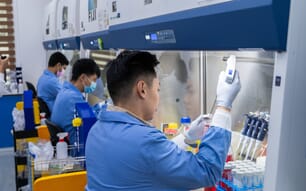The team was led by Michael Sussman of the University of Wisconsin-Madison, Harold Zakon of the University of Texas at Austin and Manoj Samanta of the Systemix Institute in Redmond, Washington.
The work establishes the genetic basis for the electric organ, an anatomical feature found only in fish and that evolved independently half a dozen times in environments ranging from the flooded forests of the Amazon to murky marine environments.
"These fish have converted a muscle to an electric organ," explains Sussman, a professor of biochemistry and director of the UW-Madison Biotechnology Center, who first undertook the exploration of the electric organ almost a decade ago.
The study published in Science provides evidence to support the idea that the six electric fish lineages, all of which evolved independently, used essentially the same genes and developmental and cellular pathways to make an electric organ, needed for defense, predation, navigation and communication.
"What is amazing is that the electric organ arose independently six times in the course of evolutionary history," says Lindsay Traeger, a UW-Madison graduate student in genetics and a co-lead author of the new report along with Jason Gallant, an assistant professor of zoology at Michigan State University.
Jason Gallant added: "The surprising result of our study is that electric fish seem to use the same 'genetic toolbox' to build their electric organ," despite the fact that they evolved independently.


